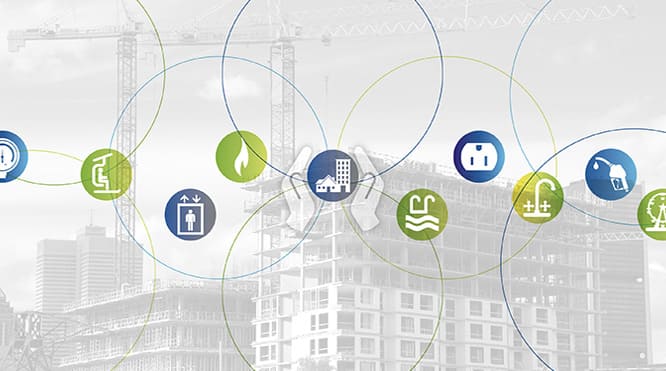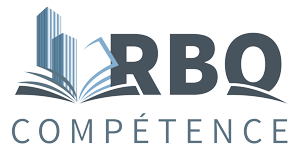In Quebec, it is true that now with social networks and the transmission of information faster than a few years ago, many entrepreneurs know that to be able to get work executed and/or execute construction work in Quebec, holding a license from the Régie du bâtiment and perhaps even holding competency cards is compulsory. But which information is true?
We will take the time to analyze in detail what the RBQ and the CCQ are.
RBQ (Régie du Bâtiment du Québec)
The RBQ’s role is first to protect the public, so it fulfills many roles in the construction field.
Laws administered by the RBQ
- Building Act
- Stationary Machine Mechanics Act
- Law on energy saving in buildings
Its fields of competence
- Standardization and regulation
- Surveillance (several site inspectors)
- Professional qualification (compulsory examinations for obtaining licenses)
- Financial guarantees (security bond for obtaining licenses)
The License
What to remember about the RBQ license;
A General Contractor (having the subclass 1.1.1 on his license, for example) may have work carried out (subcontracted) included in all the subclasses of Class II and Class III, if this work relates to a building or structure covered by the subclass of Class I, which he holds.
- Example: 1.1.1 may subcontract the contractors who will carry out work on a new house.
A general contractor (having the subclass 1.1.1, new houses on his license, for example) can execute works included in;
- The subclasses of Class II, which are included in the subclass of Class I, which he holds (in our example will be: 2.6, 3.1, 4.1, 5.1, 6.1).
- The subclasses of Class III, which are not displayed on his license, but which relate to the related work of the subclass of Class I, which he holds,
- The subclasses of Class I, II and III, whose company has the guarantor’s skills assessed and whose subclasses are displayed on his license and which do not necessarily target the subclass of Class I, which he holds.
Keep in mind: a general contractor can always tender contracts covered by his subclasses and have the work performed by subcontractors, but he cannot always execute the work himself.
A specialized contractor can obtain a license covering the subclasses of Class III by assessing the skills of one or more guarantors for administration, project management and security.
It can also have the skills of one or more guarantors assessed for all of the subclasses in Class II, all of which are individual subclasses and include an examination for each one.
The specialized contractor can then;
- Subcontract to a general contractor or to an owner builder
- Subcontract to a specialized contractor holding the same subclass or another subclass of license as him (generally in order to perform related work)
- Conclude contracts for the demolition of the works it is authorized to perform. For example, the masonry contractor can carry out a demolition contract for an exterior masonry wall.
- Conclude a contract with a natural person who wants to carry out construction work on a single-family house or work intended for his personal use or that of his family. In this case, this natural person acts as an owner builder and is exempt from the obligation to hold a license as such.
Keep in mind: any entrepreneur holding only an RBQ license without having a competency card and not wishing to hire employees may work only in the residential sector.
CCQ competency cards
A competency card (apprentice) is the first step for anyone starting the various apprenticeship periods in order to obtain a journeyman competency card. These learning periods are separated into blocks of 2,000 hours each. For example; a painter must have completed an apprenticeship of 6,000 hours (therefore 3 periods of 2,000 hours each), in order to be able to be eligible for the exam for obtaining a journeyman card.
A competency card (journeyman) is given to anyone who has demonstrated their qualifications in one or other of the construction trades. The number of hours and period of apprenticeship as apprentices are specific to each trade, but the average is 6,000 hours. An exam will be required to assess the candidate’s competency prior to the card issuance.
A competency card (occupation) is given to a person carrying out a construction activity on sites as a laborer or specialized laborer. It should be noted that if you have an occupation card, it is not possible to apply for another apprenticeship card of another trade. It is therefore not allowed to hold more than one apprentice competency card at a time. When a journeyman card is obtained for a trade, it is only then that a new apprenticeship card can be requested.
All the trades and apprenticeship periods associated with obtaining a journeyman card are available on the CCQ’s website.
An employee will be able to obtain an apprenticeship card if an employer guarantees at least 150 hours of work, if the candidate has obtained his ASP card, a 30-hour course in safety on construction sites, and if the pool is open.
You can subscribe to the shortage alert directly on the CCQ website, so as not to miss the opening of a pool in your trade.
For the RBQ licensed entrepreneur, he can apply for an apprentice competency card, as a designated person (one per company), after having obtained his RBQ license and having registered as an employer with the CCQ. Here, no need to wait for the opening of the labour pool.
In addition, if you believe that you have enough experience acquired to obtain an invitation to a journeyman exam, a request for recognition of hours may be submitted to the CCQ, in order to validate whether the total of hours submitted will be sufficient, to complete the number of hours of apprenticeship required for the trade concerned.
To remember: Any contractor holding a specialized or general contractor’s license may perform (he and his employees) or have executed (subcontracted) work in the new residential sector and commercial sectors if all the people performing the work have a journeyman or apprenticeship competency card (following the ratios) for the works performed.
It should never be forgotten that there are exceptions and several situations that lead to evaluation in order to determine whether, in the end, we are holding the right license with the right subclasses and the right competency cards.
In case of doubt, we are at your disposal to clarify any situation.



